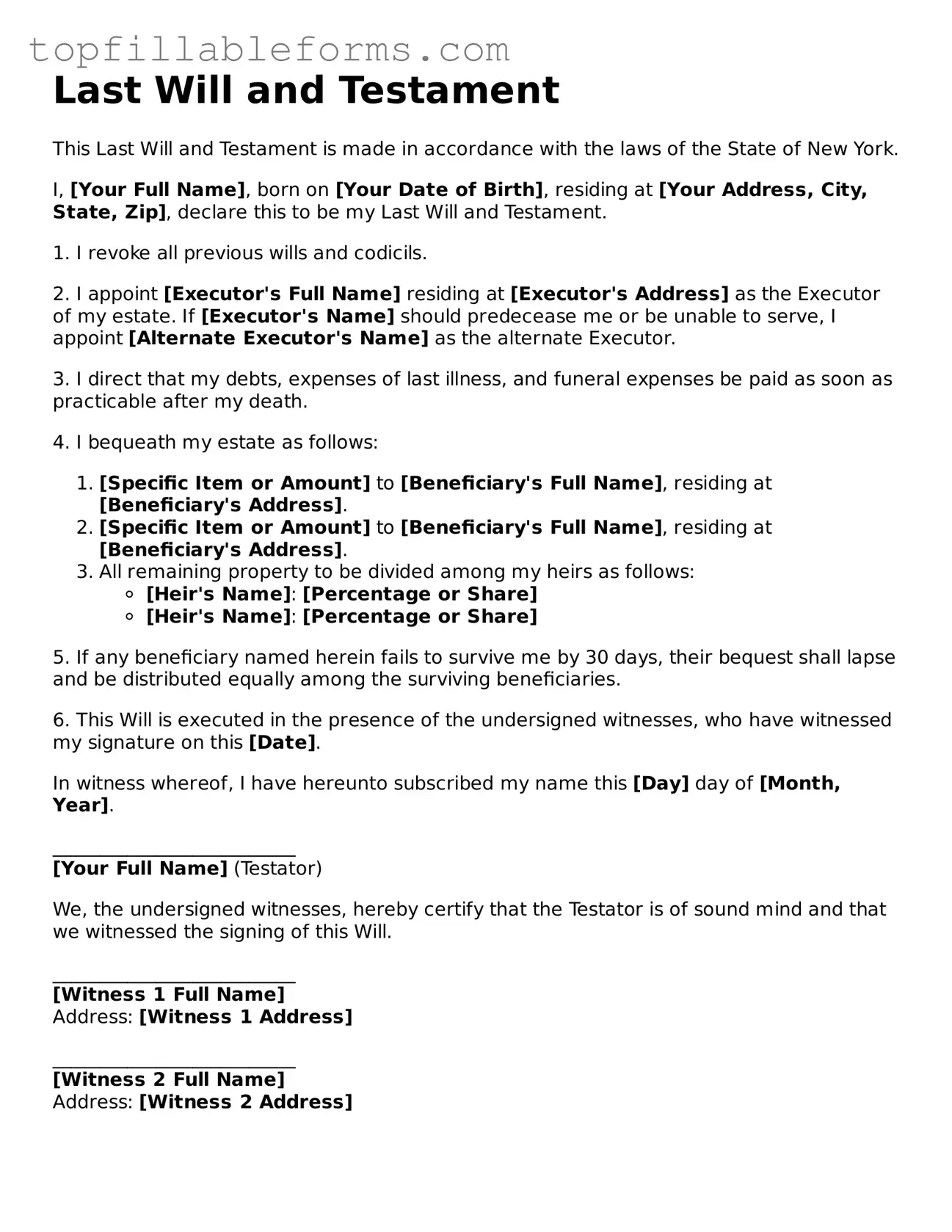Attorney-Verified Last Will and Testament Template for New York
A Last Will and Testament is a legal document that outlines how an individual's assets and affairs will be managed and distributed after their death. In New York, this form serves as a critical tool for ensuring that a person's wishes are honored and provides clarity to family members and loved ones. Understanding the specifics of the New York Last Will and Testament form is essential for anyone looking to make informed decisions about their estate planning.
Open Last Will and Testament Editor Here

Attorney-Verified Last Will and Testament Template for New York
Open Last Will and Testament Editor Here
Finish the form now and be done
Finish your Last Will and Testament online by editing, saving, and downloading fast.
Open Last Will and Testament Editor Here
or
▼ PDF File
